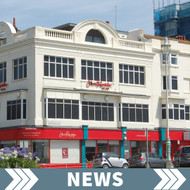Deep Blue Shifts Strategy: Nine Sites Sold to Refocus on Harry Ramsden’s
Posted by Emily on 8th Jul 2025 Reading Time:
In a bold move to reposition its business for long-term growth, Deep Blue Restaurants—Britain’s largest operator of fish and chip outlets—has sold off nine of its Deep Blue-branded restaurants. The decision is part of a broader strategy to focus resources on the heritage-rich Harry Ramsden’s brand, which the company acquired in 2019.
This round of disposals, taking place between October 2024 and May 2025, marks a significant stage in the group’s shift away from its namesake sites. The proceeds have been channelled into refurbishments, including the Brighton Harry Ramsden’s location, and fuelling both national and international marketing campaigns.
At present, Deep Blue Restaurants operates 16 Deep Blue outlets and eight Harry Ramsden’s sites across the UK.
This is not simply a story of contraction but one of calculated reallocation. By divesting lower-performing or non-core sites, Deep Blue has doubled down on a brand with historic consumer recognition and more substantial franchising potential. The group’s accounts show that profits are increasingly being driven by the licensing and franchising of Harry Ramsden’s, including a promising heads-of-terms agreement with a major UK supermarket chain—a deal expected to bring in significant new revenue.
The emphasis on franchising has become so critical that, in April 2025, the company hired a dedicated specialist to oversee the expansion of its licensing and franchising operations.
Despite enduring the ongoing impact of global disruptions, inflationary pressure on food costs, and the UK’s cost-of-living crisis, Deep Blue Restaurants has managed to reduce its annual pre-tax losses and improve its EBITDA.
Turnover for the year ending 24 September 2024 dipped 2.5% to £22.9 million, and gross profits followed with a 1.2% drop to £15.8 million. However, gross margins rose to 69%, up from 66.9% the previous year—indicating improved cost control and operational efficiency.
EBITDA before exceptional items increased from £2.1 million to £2.2 million. Meanwhile, pre-tax losses narrowed significantly to £2.2 million, down from £3.6 million. The company also reduced its operating loss from £2.6 million to £885,000—a notable improvement given the challenging climate.
To support its strategy, Deep Blue secured £5.57 million in debt funding between October 2024 and February 2025.
Deep Blue’s accounts also reflect improving labour market conditions. The group reported easing staff shortages and outlined steps taken to boost retention, including improved pay structures, better staff benefits, and enhanced training initiatives.
New CEO James Fleming, who assumed leadership in May 2025, noted that the group’s like-for-like performance has remained in line with the budget set at the start of the year. In his statement, he reaffirmed the company’s long-term confidence in the franchising-led model and the enduring appeal of Harry Ramsden’s brand.
As the Harry Ramsden brand approaches its centenary, Deep Blue’s latest moves suggest a willingness to blend tradition with modern business acumen. Rather than diluting its portfolio, the group is betting on clarity of purpose and brand strength.




